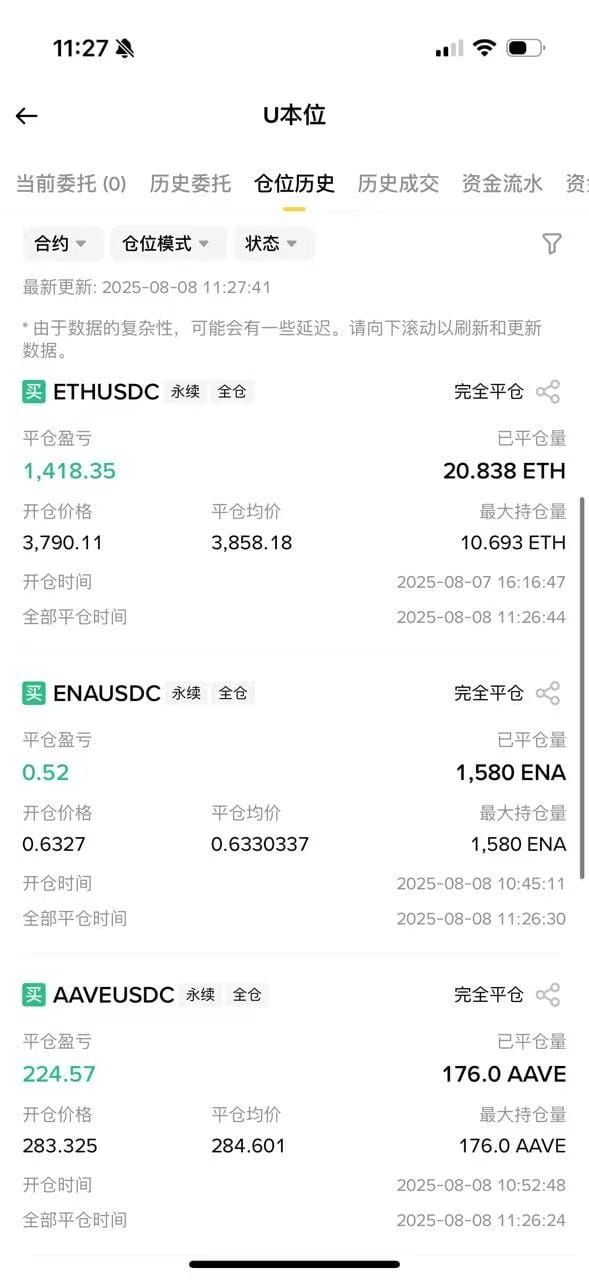When it comes to trading, almost everyone asks: Is short-term or long-term trading more profitable?
Let's cut to the chase today: theoretically, short-term trading can yield huge profits, but in reality, long-term trading is the wealth code for ordinary people.
Let's shatter the illusion of 'getting rich quickly through short-term trading': can you account for transaction fees and avoid random fluctuations?
Many people have the fantasy about short-term trading: 'If I can capture a 1% fluctuation every day, my principal will multiply ten times in a year'—sounds wonderful, right?
But have you calculated the costs?
Assuming you have a principal of 100,000, trading futures three times a day with a transaction fee and slippage of 100 each time, that's 300 a day, and for a month with 22 trading days, it's 6,600. Just the 'trading costs' alone would consume 79,000 a year, which is 79% of your principal!
What's worse is that short-term fluctuations are essentially 'random walks'. Even if you have a win rate of 50%, earning 1% when you profit and losing 1% when you incur a loss, factoring in the transaction fees, you'll inevitably end up 'earning less than you lose' over the long term.
Those who genuinely make big money through short-term trading, like Goldman Sachs' high-frequency trading systems, have equipment that costs millions of dollars, relying on 'milliseconds of information disparity' and 'zero transaction fee privilege', executing hundreds of thousands of trades a day—this is not a game that 'people' can play; it's a battlefield for machines.
Why do we say long-term trading is more profitable? Because it captures the 'time leverage' of trading (a new perspective).
The essence of long-term trading is not 'holding for a long time', but 'using time to amplify correct judgments'.
For instance, if you judge that a certain trend will last for six months, you buy in and patiently wait:
Correct, the trend will help you achieve 'compound growth', and floating profits can allow your profits to snowball;
Wrong, cut losses in time; the loss will be far less than the 'cumulative loss' from frequent short-term stop-losses.
Just like Livermore, who became wealthy several times by seizing major trends, relying on 'long-term positions + floating profit accumulation' to rise rapidly; the retail investor in 2008 who turned 40,000 in capital into 20 million in soybean oil also depended on steadfastness to the trend (unfortunately, he couldn't hold on later).
Long-term profits are not 'money from fluctuations', but 'money from trends'—and trends are precisely the inevitability that short-term fluctuations cannot hide.
Regular people doing short-term trading are essentially 'spending money to buy suffering'.
Why do so many people know that short-term trading is difficult, yet still want to engage in it?
There are only two reasons:
Short-term floating profits come quickly; the moment you sell, you can taste the 'thrill of making money', even if you turn around and lose it back;
Some people treat short-term trading as a 'profession', staring at the market for 12 hours a day, trying to earn a few hundred for living expenses, turning themselves into trading machines.
But if you observe the short-term traders around you, you'll find: they have small losses every three days and major blowouts every five days; the money they earn isn't enough to cover transaction fees, and they end up anxious and sleepless.
And what about long-term traders? After choosing the right direction, they go to work, travel, occasionally glance at the market, making it easier to hold on to profits.
Lastly, let me say a hard truth:
The scariest thing in trading isn't 'choosing the wrong cycle', but 'using a short-term mindset for long-term trading, and long-term logic for short-term trading'.
If you don't have the equipment for high-frequency trading, don't have the privilege of zero transaction fees, and can't withstand 'random fluctuations'—
Don't hesitate, choose long-term.
Because true profit is never about 'earning a little every day', but 'seizing one big opportunity that compensates for ten years of others' efforts'.

Are you a short-term trader or a long-term believer? Let's chat about your story in the comments~
Continue to follow ASR A2Z BIO OG ILV TST